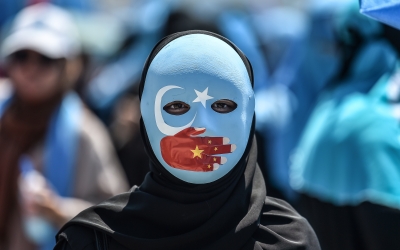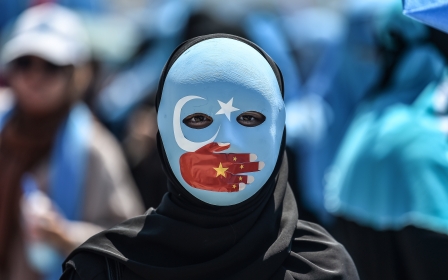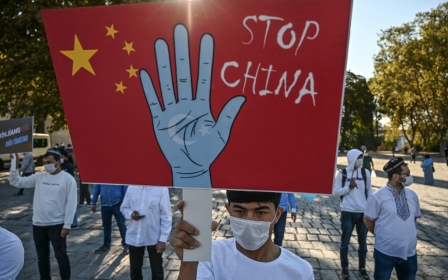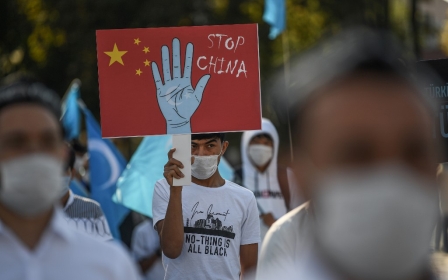Twitter blocks China embassy tweet for 'dehumanising' Uighur women
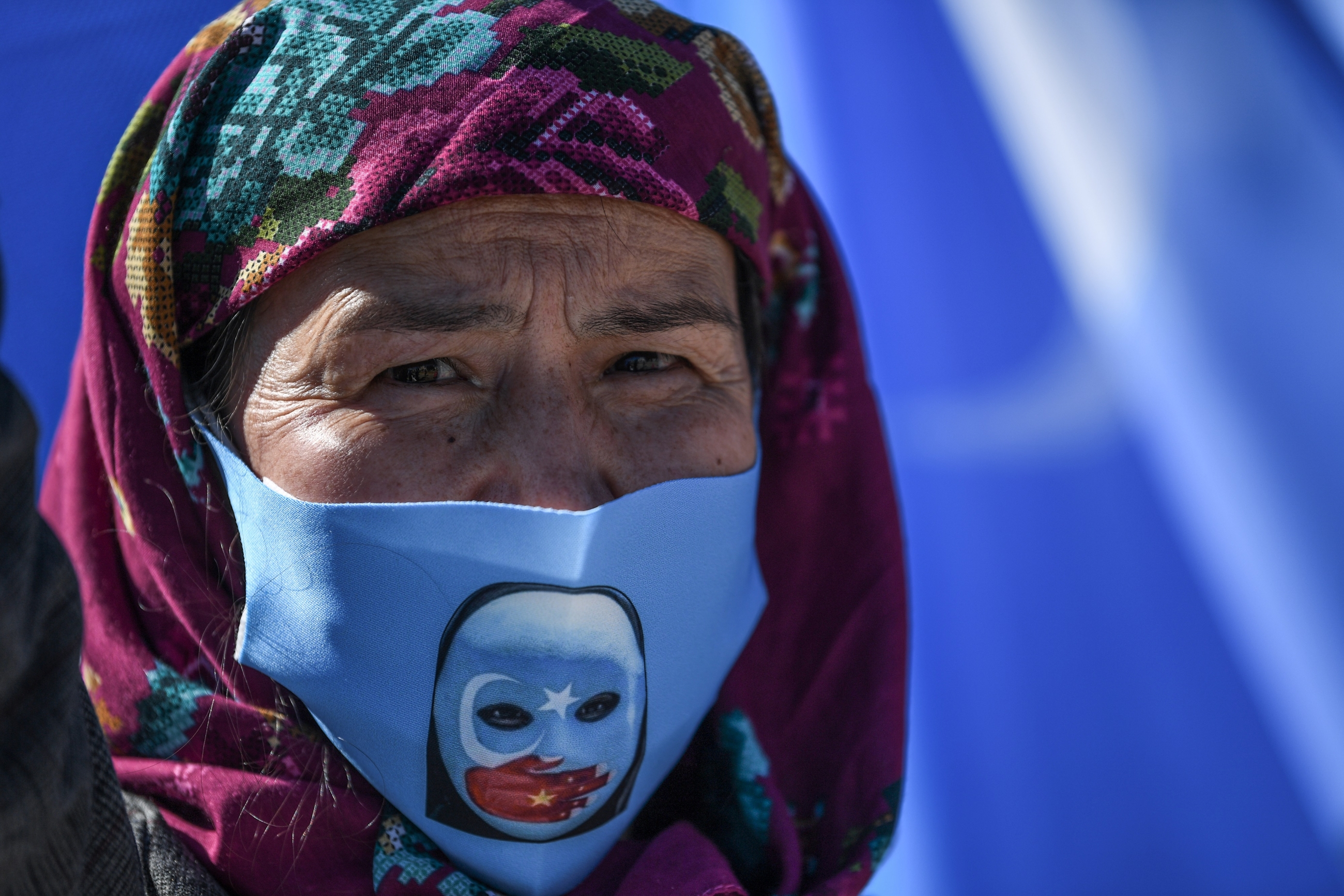
Twitter blocked a tweet on Saturday made by China's embassy in the United States which claimed that Uighur women were "emancipated" and no longer "baby-making machines".
The social media company said the tweet, which drew widespread condemnation, violated its policies on dehumanisation.
"After further review, we have taken action on this tweet for violating our rules on dehumanisation," a Twitter spokesperson told the Ars Technica technology news website.
"We prohibit dehumanisation of a group of people based on their religion, race or ethnicity, among other categories."
The deleted tweet posted by China's embassy in the US said: "Study shows that in the process of eradicating extremism, the minds of Uygur [sic] women in Xinjiang were emancipated and gender equality and reproductive health were promoted, making them no longer baby-making machines. They are more confident and independent."
New MEE newsletter: Jerusalem Dispatch
Sign up to get the latest insights and analysis on Israel-Palestine, alongside Turkey Unpacked and other MEE newsletters
Thousands used the tweet to highlight reports of forced labour and sterilisations that have taken place in internment camps, where the Chinese government is holding members of the minority Muslim community.
Sam Brownback, the US envoy on international religious freedom, said he was "appalled and disgusted" at the Chinese embassy's tweet.
"Coercive population control is not reproductive healthcare," Brownback tweeted.
"[Uighur] women deserve to enjoy their religious freedom and unalienable rights with dignity to make their own choices."
The news article linked in the embassy's tweet quotes a report conducted by the Xinjiang Development Research Centre, which claims that the "eradication of extremism" has given Uighur women more autonomy when deciding whether to have children.
The article denied that a decrease in birth rate and natural population growth was due to forced sterilisation.
Last year, a Uighur teacher told the Guardian newspaper that she had been coerced into being sterilised under a government campaign to suppress birth rates of women from Muslim minorities.
"In 2017, just because I was an official worker in a school, they gave me a wider choice to have this IUD or sterilisation operation. But in 2019, they said there is an order from the government that every woman from 18 years to 59-years-old has to be sterilised," Qelbinur Sidik told the Guardian.
'Climate of terror'
Rights groups say more than one million Uighurs and other mostly Muslim people in China's northwestern region of Xinjiang have been incarcerated in camps in a bid to root out Islamic customs and forcibly integrate minorities.
China insists it is offering vocational training to reduce the allure of "extremism" in the wake of deadly attacks.
Uighurs showing adherence to conservative Islamic customs - including praying, fasting, abstaining from alcohol, growing a beard or wearing Islamic clothing - have been detained by authorities.
Last year, an AP investigation found that a "climate of terror" was being created around having children, as Uighurs reported being threatened with being locked up in internment camps for having too many offspring.
The investigation also found that an unprecedented and dramatic drop in birth rates had taken place, transforming the population of the Xinjiang province from one of China's fastest-growing regions to its slowest. Evidence shows that hefty fines were also put in place for violating family planning laws.
Another report, by China scholar Adrian Zenz, revealed that former detainees in internment camps in Xinjiang said they were given injections that stopped their periods or caused bleeding which was consistent with the effects of taking birth control.
Uighurs residing in the Middle East have previously expressed concern over being deported back to China, where they say they could be detained and persecuted.
Middle East Eye delivers independent and unrivalled coverage and analysis of the Middle East, North Africa and beyond. To learn more about republishing this content and the associated fees, please fill out this form. More about MEE can be found here.


